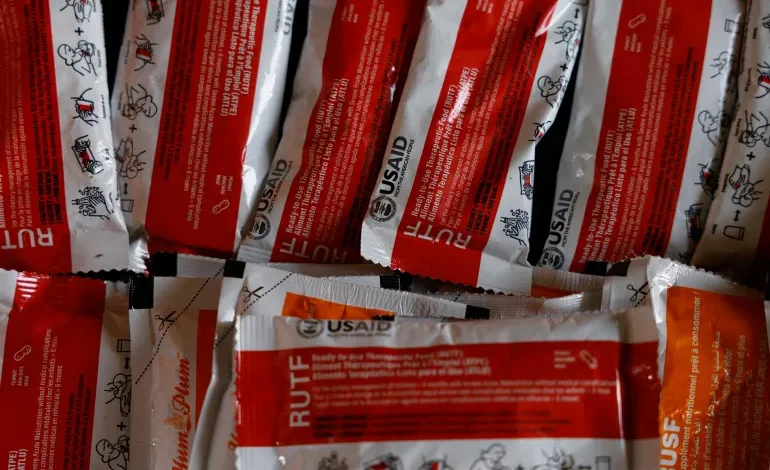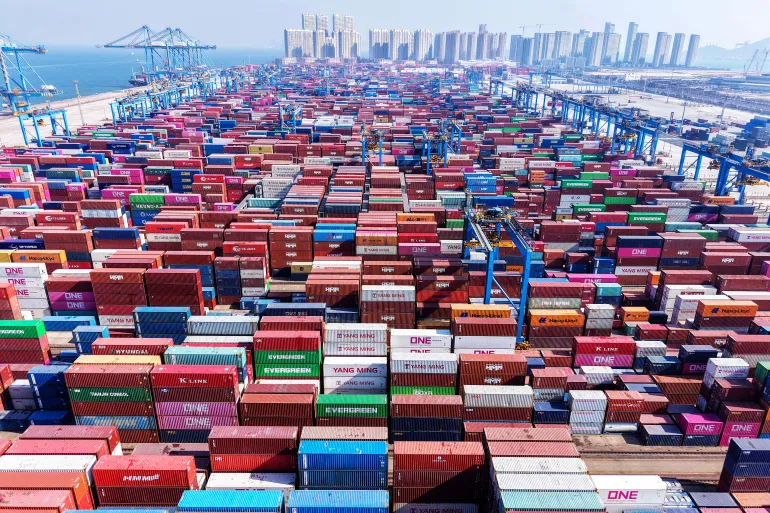Nearly 500 Tonnes of Food for Starving Children to Be Burned After Trump Shuts Down USAID

Emergency food meant to feed 27,000 starving children in Afghanistan and Pakistan is now headed for incineration, following U.S. President Donald Trump’s decision to shut down the country’s main foreign aid agency.
A senior U.S. official confirmed Wednesday that nearly 500 tonnes of high-energy biscuits, nutritional emergency food often used for malnourished children, expired this month while sitting in a warehouse in Dubai. The aid was left stranded after the closure of the U.S. Agency for International Development (USAID) on July 1.
“I think that this was just a casualty of the shutdown of USAID,” said Michael Rigas, deputy secretary of state for management, during questioning by lawmakers. He added that he was “distressed” the food had gone to waste.
According to two internal USAID memos reviewed by Reuters, and four sources familiar with the matter, about 622 tonnes of the food were saved in June and rerouted to Syria, Bangladesh, and Myanmar. But 496 tonnes, worth $793,000, couldn’t be moved in time and will now be sent to landfills or incinerated in the United Arab Emirates. That disposal will cost the U.S. government another $100,000, according to a May 5 memo confirmed by multiple sources.
The food was made up of fortified wheat biscuits, described by the UN’s World Food Programme as calorie-rich and specifically designed for emergency settings where people lack the means to cook.
The news has sparked outrage among aid groups and lawmakers. Senator Tim Kaine, a Democrat, said Congress had raised concerns about the food shipments months ago.
“A government that is put on notice – here are resources that will save 27,000 starving kids, can you please distribute them or give them to someone who can?” Kaine said. “Who decides, no, we would rather keep the warehouse locked, let the food expire, and then burn it?”
Trump has long argued that the U.S. spends too much on foreign aid and should let other countries “pay their share.” His administration first announced plans to dismantle USAID back in January, a decision that left over 60,000 tonnes of food aid stuck in storage around the world, according to earlier Reuters reporting.
In a July 1 statement marking the transfer of USAID functions to the State Department, Secretary of State Marco Rubio said the U.S. was stepping away from what he called “a charity-based model” and would instead focus on helping countries “grow sustainably.”
Rigas, meanwhile, said he would look into how the situation with the expired food unfolded. “I do want to find out what happened here and get to the ground truth,” he said.
Despite the backlash, U.S. officials have pointed out that the country remains the world’s largest humanitarian donor—accounting for at least 38 percent of all aid recorded by the UN last year, with $61 billion in foreign assistance disbursed.
Still, with global hunger on the rise, the optics of burning food aid during a famine crisis are drawing harsh criticism. According to the World Food Programme, 319 million people globally face limited access to food, with nearly 2 million on the brink of famine, mostly in Gaza and Sudan.
With input from Al Jazeera









The latest news in your social feeds
Subscribe to our social media platforms to stay tuned